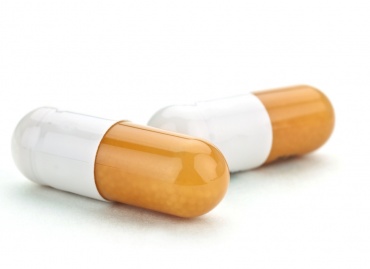
For some people medications can cause unwanted side effects. These are usually short term, until your body gets used to the new medication, but they should be taken into consideration and discussed with your healthcare team before starting the treatment. Your doctor or pharmacist can recommend ways to tackle side effects.
Common side effects of anti-HIV treatment include:
If you experience any side-effects or symptoms, talk to your doctor – even if they are minor. It is important to receive the support of your healthcare team so that you can continue effective HIV treatment and improve your quality of life.
Changes in taste perception, caused by medication, usually disappear after a few weeks but can persist.
Try the following ideas to overcome this problem.
Rinse your mouth before you eat
Keep your mouth clean and try to brush your teeth or eat a strong mint after taking medication
Use straws when drinking to avoid liquids coming into contact with your taste buds
Avoid foods that taste unpleasant
Add sugar or honey to foods that taste too acidic or try adding lemon juice or vinegar to foods that taste too sweet.
Use plastic cutlery and cups as to avoid a metallic taste in the mouth
People living with HIV may experience tiredness and fatigue from time to time. This can be due to extra energy requirements, vitamin deficiencies, hormones, psychology, other health conditions, or it can be a side effect of medications.
Some people report an increase in energy levels after starting HIV treatment but everyone is different and some people report increased fatigue, particularly in the first weeks of starting a new drug regime.
Your tiredness could be caused by a lack of certain vitamins and minerals so it is important to eat a healthy balanced diet. A lack of iron can cause anaemia which leads to fatigue. Find advice on iron here.
If you are having difficulty sleeping try to avoid too much coffee or alcohol and try to introduce some regular exercise into your life.
Receiving an HIV diagnosis can have a big effect on your mental health and some HIV medications can also lead to low mood. It is important to seek help if you are struggling to cope or experiencing very low mood, anxiety and trouble sleeping, speak to your clinic or GP for support. If you need urgent mental health support, check out the resources here.
Eating habits can also affect our emotions and sleeping pattern so it is important to find foods that you enjoy and support your mental and physical health. Lack of some vitamins and minerals can worsen your emotional health such as low iron, folate and vitamin B. Here are some tips to improve your mood with food:
For more tips on mood and food, see our Food and mood factsheet

